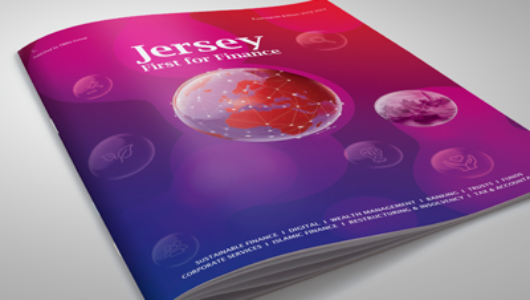The Jersey Government will also be issuing the National Strategy for Combatting Money Laundering, the Financing of Terrorism and the Financing of Proliferation of Weapons of Mass Destruction and all these components play a pivotal role in the development and economic growth of Jersey’s local compliance environment.
Many of you will be familiar with the ideas behind sustainability or environmental, social and governance (ESG) principles which promote consideration of these factors alongside financial ones, when making investment decisions or defining business strategy.
In recent months, these factors have received greater attention than ever before.
From wildfires in Australia to the rise of Extinction Rebellion, concerns around the environment are never far from the surface. The agenda is broader than the environment alone with investors using their influence to put ‘responsible business’ at the forefront of the corporate agenda. The current COVID-19 pandemic has shone yet more light on the subject, highlighting those companies that do (and those that do not) keep their staff safe and use their skills or equipment to provide support where needed.
The sustainability agenda is relevant for us and our clients in many ways. It is increasingly affecting how we manage our businesses on a day-to-day basis. This includes how we impact the environment and manage our carbon footprint, how we handle our social responsibilities and support our communities, as well as how we build our internal culture and wellbeing
approach.
It also affects our investment activity and what we can offer our clients. We are seeing a significant acceleration in clients’ and prospective clients’ interest in socially responsible and sustainable investments. We have seen Jersey address these initiatives by updating the Codes of Practice for funds and investment businesses. It is likely that we will see further updates as this initiative develops.
Cyber risk is yet another concern that has been at the forefront of our minds. Throughout the COVID-19 pandemic, for most businesses, cyber risk presented an increasing threat. Changes in working patterns and locations has impacted how we manage and control these risks.
Due to the evolving nature of fraud, it is critical for businesses to ensure they protect the interests of clients and their firms against the latest threats and that effective controls exist to help deter, prevent and detect fraudulent attempts and that adequate processes are implemented to investigate attempts as well as to remediate and recover from fraudulent activity.
This has led many in the industry to review internal controls and several have identified the need to invest in systems. There are many systems on offer and it can be complicated selecting the right system for your type of business. However, I believe the advancement and technical capability of current systems has come a long way and the COVID-19 pandemic has accelerated the need for providers to ensure that they can keep up to date with the most recent technical advancements.
Another topic on our minds is the pending MONEYVAL visit. We have seen a significant increase over the past few years in data submission exercises that form part of the national risk assessment, as well as updates made to the AML Handbook and underpinning regulations. These updates not only enhance local controls and Jersey’s environment as an offshore financial centre but contribute towards Jersey achieving the ‘Gold Standard,’ awarded by MONEYVAL, that the JFSC is aiming for.
So, what does this all mean for the future of Compliance Officers and professionals and how can the Jersey Compliance Officers Association (JCOA) provide support?
Having such a fast paced, dynamic and diverse set of ever-changing regulations and requirements means that compliance professionals must keep up to speed with complex and advanced regulations and governing initiatives. The digitalisation of previous paper tasks, audit and centralised data systems are all contributing factors. We have seen these issues addressed by guidance provided within the AML Handbook, specifically around electronic verification tools and certification requirements and again the COVID-19 pandemic accelerated the need and demand for such systems.
The JCOA has been working with industry professionals along with key stakeholders at the JFSC, JFCU (Joint Financial Crimes Unit) and the Government of Jersey, to provide up to date and relevant training for all levels. We have also invested time in soft skills training with local charity Mind and we have provided technical training on consultation papers and guidance notes, with local consultants and lawyers. Providing relevant and accessible training via live webinars, which are also available on catch up, has meant we were able to support our members throughout the COVID-19 pandemic.
Furthermore, the JCOA has reviewed how we offer training going forward, taking a more sustainable and cost-effective approach. Ensuring compliance professionals are up to date with evolving regulations, ensures that the local compliance community is aware of the external regulatory environment and provides an accessible platform to question and communicate with pivotal stakeholders and other compliance professionals.
In addition to training and continued professional development, having a dynamic and appropriately resourced compliance team can make all the difference in such a fast-paced changing environment. It is also imperative that talent retention and onboarding new staff is considered, now, more than ever. We have seen many businesses taking the appropriate steps to expand and develop internal compliance teams, particularly subject matter experts, in areas such as ESG and cyber risk, which is a fantastic commitment and very much required.

